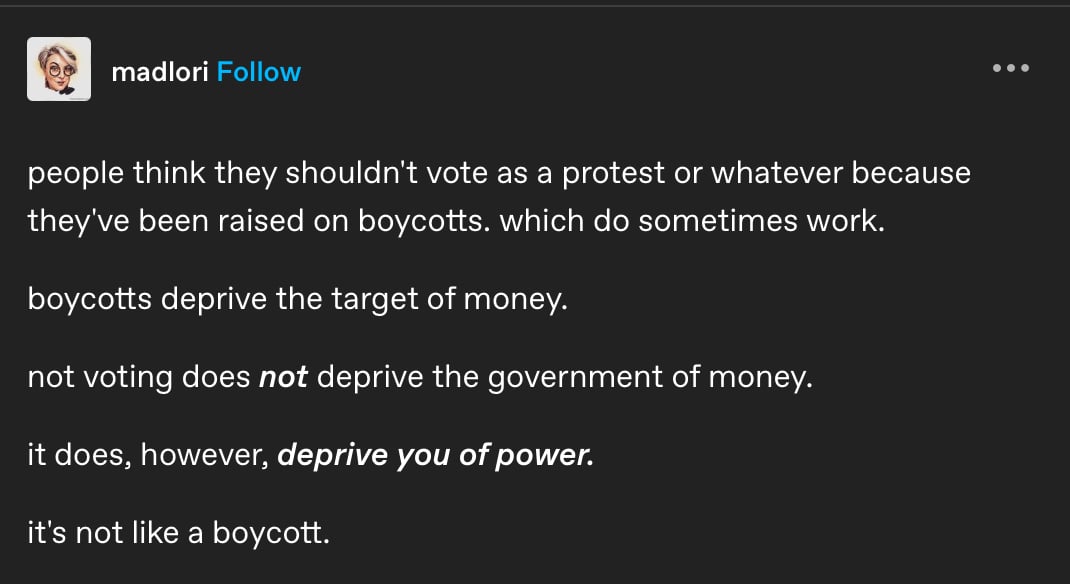In a democracy voting is not a right, it’s a duty.
I often think that Starship Troopers had the right idea, for the wrong reason.
We know that humans mentally value things relative to the value others place in them; this is why a $2 spoon will not sell as well as the exact same spoon marketed as $6 but discounted to $3!
In SST, you could only vote if you’d served in the military. You had to earn the right to vote. In the US, voting is (idealistically) free, and people consequently value it as much as anything that’s been given away for free, which is to say, not much. If it had to be earned, I’m fairly well convinced that more people who had it would value it and consequently exercise it more.
Restricting voting in any way shape or form creates avenues of control.
No one chose to be born in America and you cant exactly up and leave. If you believe in inalienable rights you are doing this country a service by participating in society.
I agree. Mandatory voting, like some countries have, is probably the best option.
I was pointing out that there’s humans tend to assign value to things based on external factors, such as the value others assign. Freely given things are valued less than things that have a cost. But looking at voting as civic duty, and making it mandatory, is better than assigning a cost to it (such as earning it through service), which is only ever a hack.
If I’m not mistaken, it’s not even military service, just any kind of public service.
I’ve read the opinion that most people interpret SST the opposite of what the author intended.
Here in Brazil the law considers voting a duty, no one can choose to not vote, and everyone HAS to register on turning 18.
SST was written by Robert Heinlein. Read even a brief biography about the guy, and it’s pretty evident that people claiming 3D chess are full of bollocks.
I love Heinlein. I grew up on Heinlein. But he was what he was, and that was (or has become, I guess) controversial. Grooming pedophilia justified by the children being sex-changed clones was not the most outré of his concepts, and there was no subtle political commentary there.
Heinlein made many poignant social insights. He also had many questionable kinks. His novels were a grab bag of both.
Fair. Would you say Starship Troopers was social commentary?
Alas, I never read that one.
It’s good. I don’t remember it bearing much resemblance to the film, but I last read the book probably over 40 years ago and the movie was released 27 years ago. The movie was absolutely political satire.
I hear what you mean, but I never had to zap giant space bugs and I totally value my - and everyone’s - right to vote. It’s not hard to do, just sometimes defeated by cynicism, structural racism, broken social orders, etc.
You are an exceptional person, unrepresentative of the Common Man.
I didn’t come up with the theory; it’s a fairly well established and studied effect. Not Starship Troopers, but how humans tend to assign value to things.
Not voting as a form of protest doesn’t work. Your protest is just another “didn’t vote”, without cause, without message. You’ll just be another person who didn’t care enough, which is the opposite effect of your original motivation.
Abstaining a vote does not deligitimize the election, it just deligitimizes you.






